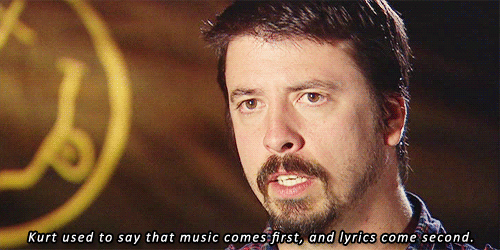AFP Music: In Defense of the Interview
Is there a such thing as a stupid question?
According to our second grade teachers and parents, no. However, in the world of music journalism, the response not as positive. According to some outlets, yes, there definitely are stupid questions. Especially when it comes to interviews.
About six months ago, Nosiey ran a piece about what to ask and what not to ask during an interview with a band. The article amounted to a list of taboo questions that the author, Dan Ozzi, determined to be “shitty.” The list was drawn up based on the the premise that if a question could “be asked of literally any band ever…[then] it is a bad question. Do not ask it.” Questions like “What does your band name mean?” and “What are your influences?” were the first to be stricken from use. Both those questions are fairly popular, so it makes sense that Ozzi would want them taken out of circulation. However, this unforgiving stance on the content of interviews fails to address several things.
Firstly, how old a band is. Not how long have they been a band or whether they’re tweenie-boopers, but rather how long have they been in the public eye. Are they a known band? How long have they been sitting down for interviews and fielding questions? If the band has only ever done an interview with their hometown newsletter, it’s safe to ask about the origin of their name and how the band members met. If the band is The Foo Fighters, those kinds of questions are best left off.
Ozzi has a point in wanting to pull questions that deal with such basic knowledge, but rather than telling writers to simply never pose those questions perhaps sounder advice would be to suggested a quick Google search. It sounds obvious, but research is an integral part of interview prep and knowing what questions have/have not been asked can save an interviewer the embarrassment of appearing uninformed or clueless. This can be done by determining what about a band is common knowledge. What does everyone already know? What information is already out in the ether and the internet? If the answer to a question can be found on the first page of Google, the band’s Wikipedia page, in every recent interview and/or on a shirt in Urban Outfitters, it doesn’t really merit being asked again. If a question is only answered in the band’s Tumblr Ask section, ask it.
Another factor Ozzi’s article neglected to address is timing. A band may have already been asked “How was the recording process for your album?” in an interview, but they also may have just spent time in the studio, breaking old habits and completely changing their process. In thiat sort of situation, the question is fair game. However, it might suit the interviewer to refurbish said question a bit. Instead of asking “How was recording this album?”, ask “How was working with X producer this time around?” Again, this means knowing the band, understanding their scope, their audience and their history.
Research should help to establish the context of an interview. Each interview should contribute to the conversation being had about the band. Questions can start new threads and explore untouched areas, but context is important. No one wants to be the 50th person posing a question, but there is a reason dozen of interviewers are drawn to the same questions and it isn’t simply a lack of imagination or gall. There is a difference between a great, original question and a total outlier. Admittedly, there is great potential for an outlier to become that one totally random question from left field that everyone enjoyed, but no one saw coming. However, this is also the danger that said outlier is so out of context that it ruins the interview. Recently Krishnan Guru-Murthy, of Channel 4 News, interviewed Robert Downey Jr. During their talk, Guru-Murthy surprised the actor with questions about his personal life. Downey, who was promoting Avengers: Age of Ultron at the time, asked, “Are we promoting a movie?” then shortly thereafter walked out. As much as Guru-Murthy had a valid question, it wasn’t the time to ask it. Their meeting was during a lighthearted press tour, not 60 Minutes.
Every industry, every person has these same sort of soft spots. These topics aren’t out of bounds; they’re just not always appropriate. For example, maybe not every single interviewer should ask Dave Grohl about Kurt Cobain. Perhaps now following the release of Montage of Heck that question in particular is once again relevant, but relevance fades. The issue again goes back to context. The atmosphere of the industry, the tone of the interview and the conversation being had around it all inform the questions being asked.
It also helps to know the publication, it’s tone and it’s audience. If a band has interviewed somewhere before, a series of follow-up questions may serve an interviewer better than even the most unique question. If a band hasn’t been covered before, maybe there’s room for some basic facts.
What is and isn’t common knowledge about a band shifts over time. A band that your parents know everything about may be effectively unknown to a modern audience. The distance between when a question was first asked and when it was posed again may be several months, a long hiatus or an entire decade. The span of this time period can enrich or change the answer to question. Obviously, this doesn’t work for questions like “How did you get its name?” but it may alter other answers. Overall, Ozzi is correct in asking for a better quality, better caliber interview. However, his assertion that there are questions that “musicians are tired of answering… [and] readers are tired of reading them” simply isn’t true. They may be tired, but there may be the time to use them. That time may be a band’s first interview or their 20 year retrospective. Interviewers should take Ozzi’s points as guidelines, as a premise to giving a better interview, not as reason to strike “How do you write your songs?” from the record forever.
-Zoe Marquedant




